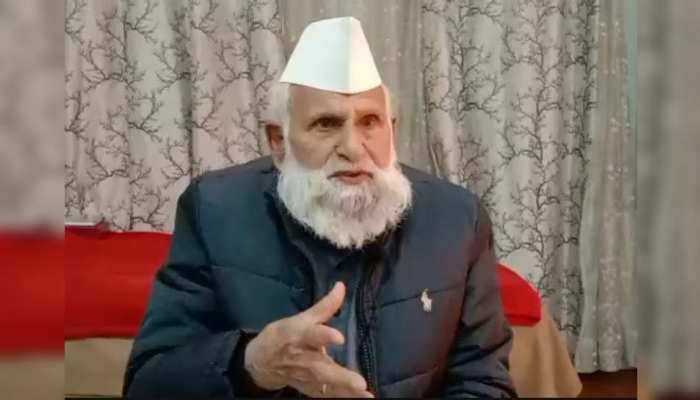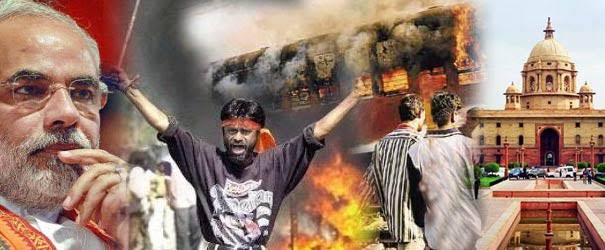BY AKHLAD KHAN @BawaNaaved
The hijab row came to light on January 1 at Government PU College in Udupi of Karnataka state in India, where six female Muslim students were barred from entering classrooms wearing hijab. The students held a press conference, where they said that permission was sought but college authorities refused to let them enter the classroom with their faces covered.
They students dissented against college authorities, which subsequently surfaced into a state-wide issue. Reports of similar protests emerged from other towns in Karnataka. These protests, and counter demonstrations involving saffron scarves, have since spread to other states of the country.
Adding to the issue, Hindu boys expressed their opposition by wearing saffron coloured shawls to protest against the Muslim students movement. The hijab row in Karnataka has been raging for more than a month, with protests and counter demonstrations by Muslim and Hindu students.
Several videos of the protests emerged, which showed students of the two communities engaging in verbal spats. One such video from a college in Mandya showed a Muslim girl standing her ground as a large number of saffron scarf wearing youths heckled her and shouted slogans of “Jai Shri Ram”. She shouted back at them: “Allah Hu Akbar!”
Meanwhile, in several educational institutions across the Karnataka State, even teachers were being asked to remove their Veil/hijabs, burqas before they enter institutions.
Chandini Naz, a lecturer teaching English at Jain Pre-University College, Tumakuru of Karnataka, resigned from her job on February 16, after she was asked to remove her veil/hijab. She said in her resignation letter that she quit “as you demanded that I remove my veil/hijab which I have been wearing for three years in your college”, she told reporters. However, The college principal expressed his helplessness as he said the department instructions were to ask teachers to also remove hijab.
Probe revealed that there have been widespread complaints of not only of teaching and non-teaching staff also being made to remove hijabs on campuses, but even educational institutions that had no uniform prescribed earlier being asked to remove hijab, contrary to the interim order.
Several petitions were filed in the Karnataka High Court on January 31 in which Muslim students sought the right to wear Hijabs in classrooms under Article 14, 19 and 25 of the Constitution of India. The court heard it for the first time on February 8.
The High Court of Karnataka, in its interim order pending consideration of all such petitions, last week had temporarily restrained all the students from wearing saffron shawls, scarves, hijab and any religious flag within the classroom.
Even after the High Court interim order, the controversy refuses to quiet down as the Muslim girls students remain adamant to be allowed to attend classes with ‘hijab’ and ‘burqa’ on Thursday as well.
The High Court resumed hearing in petitions filed by Muslim girls studying in government pre-university colleges in Udupi against the government ban on Hijabs in classrooms. The court had adjourned the hearing yesterday after state advocate general Prabhuling Navadgi sought time to respond to the petitions.
In an attempt to calm tensions, Karnataka’s state government temporarily closed schools last week but have been opening gradually over the last two days.
Meanwhile, A first information report (FIR) was registered against at least 10 girls for violating prohibitory orders by staging a protest over the hijab issue outside a college in Karnataka on February 17. This comes a day after the Karnataka government contended before the high court that the hijab is not an essential religious practice of Islam and preventing its use does not violate Article 25 of the Indian Constitution, which guarantees religious freedom.
Discussing the row, Rashad Hussain, the US Ambassador-at-Large for International Religious Freedom, tweeted “Religious freedom includes the ability to choose one’s religious attire, The Indian state of Karnataka should not determine permissibility of religious clothing. Hijab bans in schools violate religious freedom and stigmatize and marginalize women and girls.” However, the Indian government rejected criticism by foreign countries over the controversial issue as “motivated comments” on internal matters and thus are not welcomed, and said the matter is being examined by the state high court.
The Ministry of External Affairs (MEA) in New Delhi stated that the matter regarding dress code in some educational institutions in Karnataka was under judicial examination by the High Court. “Our constitutional framework and mechanisms, as well as our democratic ethos and polity, are the context in which issues are considered and resolved,” Arindam Bagchi, the spokesperson of the MEA, said. “Those who know India well would have a proper appreciation of these realities.”












